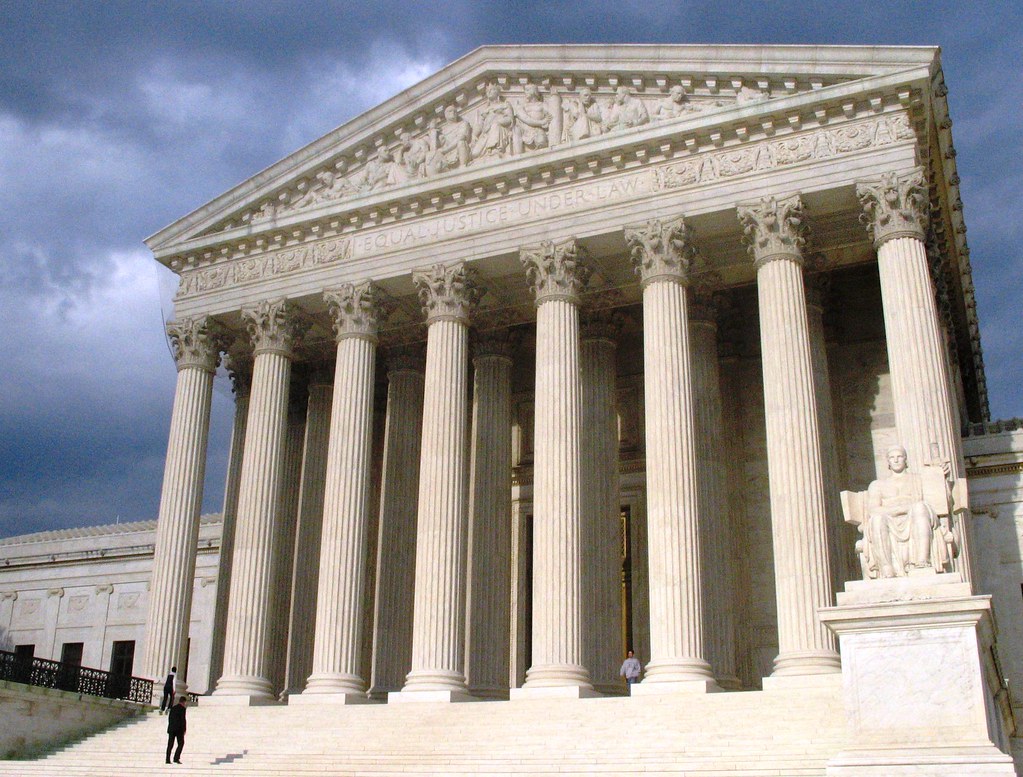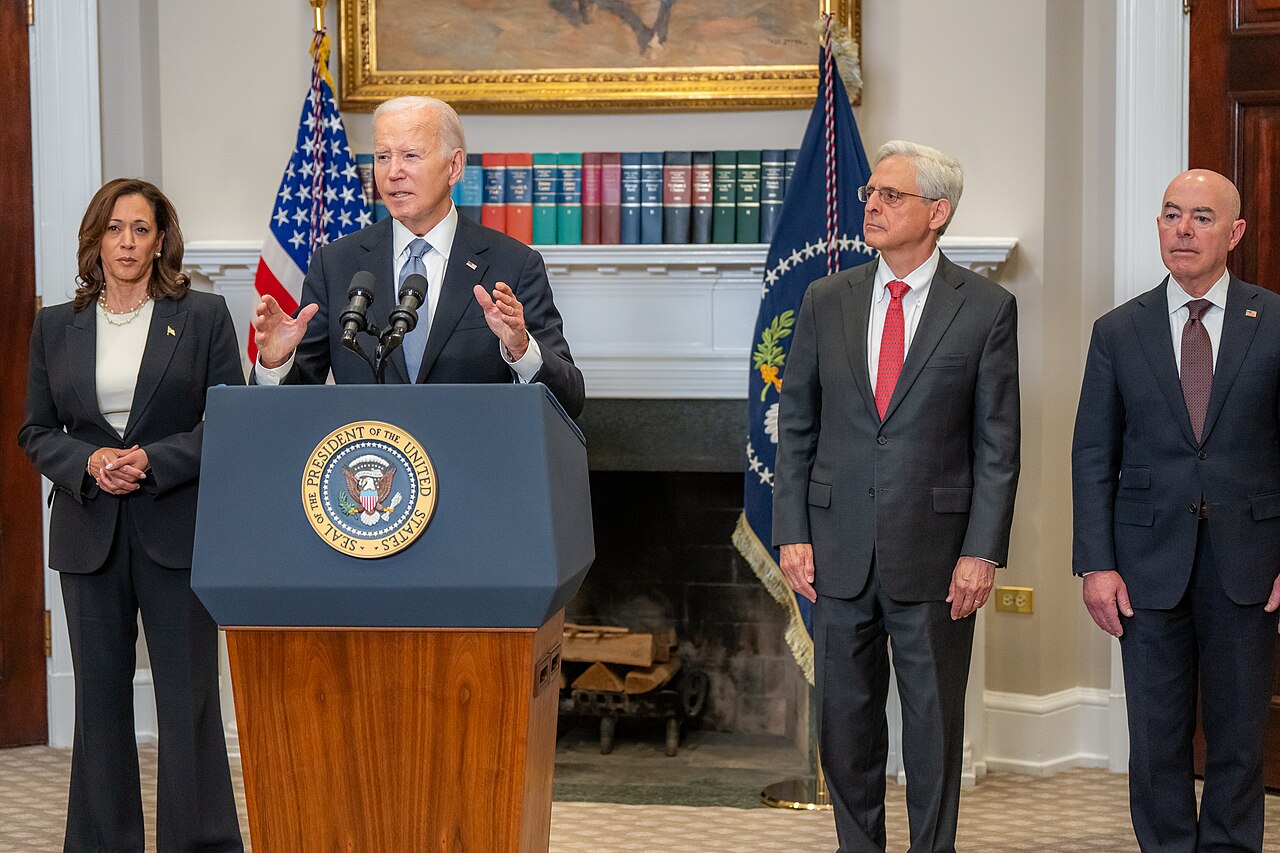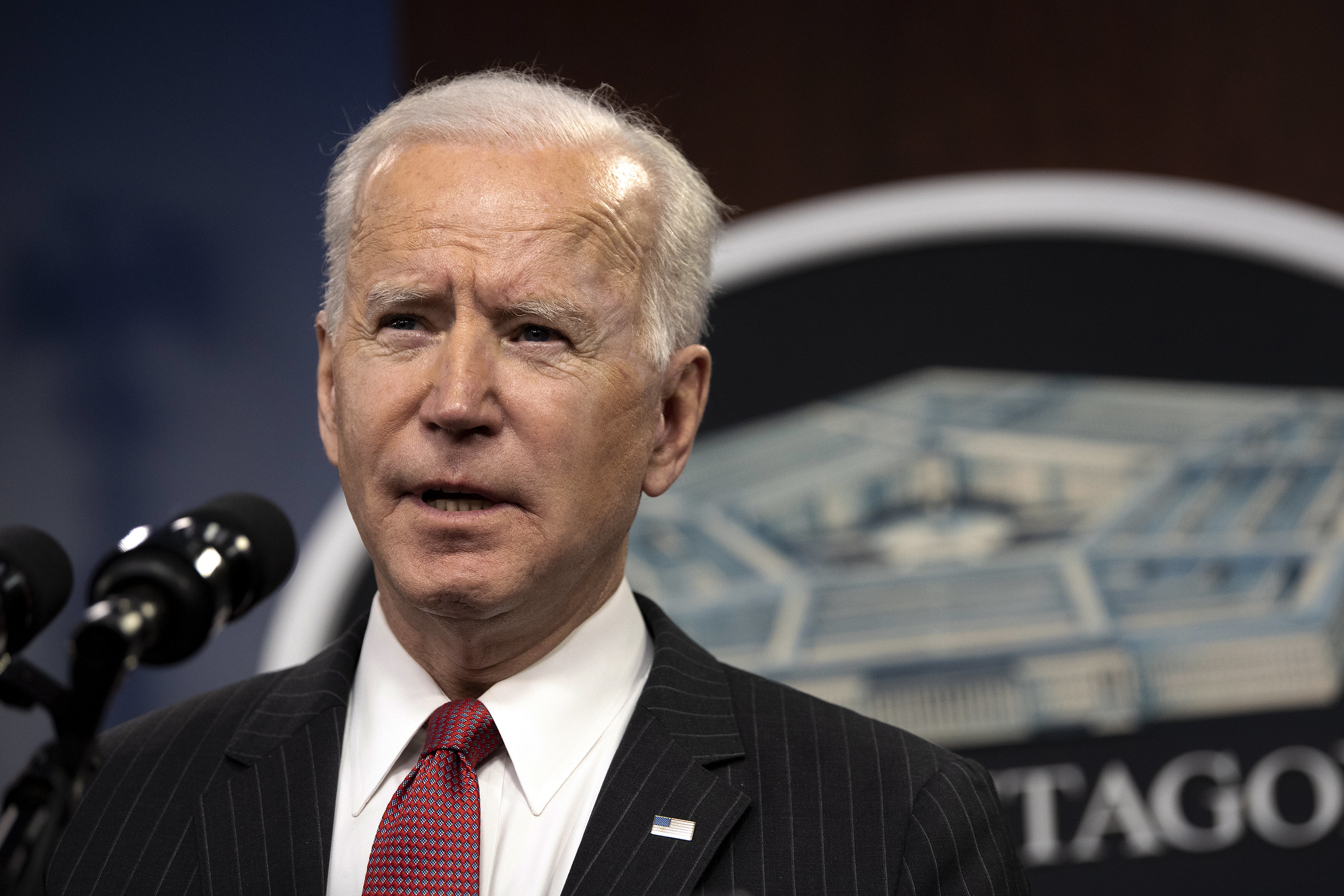Of the many, interlinked crises that define American life in the 2020s, none is as literally existential as climate change. Biden’s first White House stint and the next presidential term will cover most of the remaining years the United Nations estimates Earth has to prevent catastrophic and irreversible global warming.
Incalculable, globally historic pain and suffering are already happening as a result of the climate crisis. Yet the forces of big business responsible — most especially the fossil fuel industry, but also Big Agriculture, the military-industrial complex, and others — continue to spend tens of millions every year blackmailing American leaders into softballing and even ignoring the literal end of the world as we know it.
The Revolving Door Project has taken a two-pronged approach to aid in the fight for government action at the speed and scale necessitated by the climate emergency. First, we have researched and raised alarms about the tools that polluting industries use to ossify the departments and regulatory agencies tasked with holding them accountable.
Around the 2020 election transition, we highlighted corrupt Trump appointee Andrew Wheeler’s degradation of the Environmental Protection Agency (EPA) in our collaborative “Swamp Tour” with the Progressive Change Institute. We tracked and exposed political contributions from influential fossil fuel figures in our Presidential Power Map. We raised alarms about fossil fuel allies sidling up to the Joe Biden campaign, as the Project’s Miranda Litwak and Max Moran wrote about in The Intercept, and the executive branch itself, as the Project’s Dorothy Slater wrote in our Fossil Fuel Industry Agenda. We pushed the Biden administration to nominate public interest-minded candidates for high-level political appointments, while exposing the rip current of Trump holdovers and industry-aligned appointees working against the administration’s best impulses.
We pointed out under-utilized powers, such as the EPA’s ability to refer other agencies’ environmentally damaging decisions to the White House Council on Environmental Quality for review and inter-agency mediation, in contexts like the Tennessee Valley Authority’s corrupt disregard for the imperative of decarbonizing our energy supply, and the Federal Energy Regulatory Commission’s obsequiousness to the oil and gas industry’s reckless expansionism.
We exposed how fossil fuel company lawyers were urging the Supreme Court to skirt ethics requirements in order to suppress state and city-led lawsuits against oil and gas majors, after pushing Biden’s Justice Department to reverse Trump-era amicus briefs in those cases siding with the fossil fuel defendants.
We examined the hydrogen industry players poised to make billions from the Inflation Reduction Act’s clean hydrogen tax credit, and their influence campaign to weaken the safeguards for that tax credit’s implementation, in our Hydrogen Industry Agenda Report. And we investigated one of the latest greenwashing plays from the gas industry—”certified” or “differentiated” gas—as they sought to influence ongoing methane rulemakings from the Biden administration and charge utility customers premiums, research which was cited by Senator Markey in an oversight letter to the Federal Trade Commission calling for an investigation of oil and gas marketing claims.
Second, we have also sought to show that climate change is a whole-of-government problem, just as it is a whole-of-society problem. Scattered across the executive branch are far more powers and appointees relevant to saving the planet than just those in the EPA or Department of Energy (DOE). As our Jeff Hauser told Kate Aronoff, “You could have the best EPA Administrator in the world. If they get overruled by OMB or NEC, it’s kind of irrelevant how good they are or how hard they fight.”
For example, financial regulators, mainly those who sit on the powerful Financial Stability Oversight Council (FSOC), can set rules to disincentivize lending to climate-degrading industries and to protect the financial system from climate risk, as we described in our “FSOC 101” explainer. BlackRock, the world’s largest investor in fossil fuels, aggressively lobbied little-known regulatory agencies which still have seats on FSOC to insulate it from a level of oversight which could have substantially changed its behavior. We have been at the forefront of calling out BlackRock’s practice of hiring Democrats in an effort to “greenwash” their brand, as well as pushing regulators like Treasury Secretary Janet Yellen (as leader of FSOC) to step up and regulate BlackRock as it should be regulated.
The Revolving Door Project aims to keep this kind of deep inside-game from being exploited. To that end, we’ve integrated climate change into all of our other lines of inquiry into corporate capture of the executive branch. Most of the world had never heard of Larry Summers’ horrific record on climate issues until RDP wrote about it and shared our research with allies. Now, his history of wrist-slapping the fossil fuel industry played a key role in the surge of pushback that led him to officially refuse any job in a Biden administration. Similarly in the case of Alex Oh, a corporate lawyer who defended the likes of ExxonMobil, Fannie Mae, Bank of America, and Pfizer. Oh resigned less than a week after being appointed as the Security and Exchange Commission’s (SEC) Enforcement Director, citing “developments” in the case where she defended ExxonMobil against Indonesian villagers citing torture and implying she would prefer not to deal with the inevitable bad press. This came soon after a letter from RDP and other progressive groups urging SEC Chairman Gary Gensler to revoke the appointment and our research publicizing the extent of Oh’s legal career.
Between the success of keeping Alex Oh out of government (which led the NY Post to blast us as a “good-government group” who put “a progressive bullseye on her back”) and our work successfully pressuring Gensler to clear house at the Public Company Accounting Oversight Board (PCAOB) (infuriating those at the Wall Street Journal), it’s clear we are making the right people mad.
Whether it’s installing Department of Justice (DOJ) officials ready to prosecute polluters to the fullest extent of the law, or setting new rules at the Office of Management and Budget (OMB) to screen all government spending projects for climate equity, there are considerable actions the executive branch can take to reorient our governance around the overriding need to protect our planet. Max Moran detailed several of these for The American Prospect in July of 2020. There are also important gatekeepers scattered across the executive branch which environmentalists must know how to overcome to get the change we desperately need: the most prominent of these is the Office of Information and Regulatory Affairs (OIRA), which our Jeff Hauser wrote about in September of 2019.
In addition, RDP has drawn attention to the influential role of the Federal Reserve, which is a key climate policymaker whether or not it identifies as such. We helped lead the noisy, albeit ultimately unsuccessful, fight against the renomination of Fed Chair Jerome Powell, citing the former private equity executive’s affinity for Wall Street and lax approach to financial regulation. A vindicated RDP has subsequently criticized Powell for both his regulatory inaction, which has kept the U.S. at the bottom of the international ranks when it comes to mitigating climate-related financial risks, and for his unwarranted campaign of interest rate hikes, which has constrained the green economic transition while doing little to alleviate profit-driven inflation.
Notably, the forces arrayed against climate action are more sophisticated than just oil lobbyists and pipeline executives. Too often, individuals with seemingly strong climate credentials revolve out of government and into influence-industry positions secretly funded by the fossil fuel industry — be they think tanks, academic institutions, or the greenwashing divisions of major investment corporations — or to corporation-defending BigLaw firms, as we highlight in our BigLaw series. These seemingly upstanding institutions provide moral cover to the allies of Big Oil, allowing them to list an employer which sounds more respectable than ExxonMobil or Shell, even if those companies are the ones really paying the bills.
The Revolving Door Project aims to expose these front groups, and prevent anyone willing to take under-the-table cash from the fossil fuel industry from exerting power in the federal government again. We will not shy away from criticizing those loyal to BigLaw firms and their corporate, fossil fuel giant clients, like Michael Connor, who is leading the Army Corps of Engineers, or Todd Kim, the top environmental lawyer at the Justice Department.
We have also expanded our work on the climate crisis, and our oversight of climate’s biggest villains, into state-level work. Focusing primarily on state-level Attorneys General, we have begun interrogating what interests are funding some of the most powerful and influential actors at the state level, how that influences and informs state and national policy, and more.
We will continue to keep a watchful eye on the DOJ, call out those loyal to profit over climate like Mark Gallogly, push for Biden to utilize the most obscure aspects of his power (like appointing five new members to the Federal Retirement Thrift Investment Board, who could divest federal retirement money from fossil fuels), and spotlight little-known positions in places like the Treasury Department and the SEC which could have huge impacts on climate action.
The stakes of the climate crisis leave us morally obligated to use every tool in the executive toolbelt that can prevent irreparable harm, and to shield the government from anyone willing to accept anything less.
Below you will find some of the project’s writing and research on climate policy. For a selection of quotes and interviews on the topic, please visit this page.
July 10, 2024 | Revolving Door Project Newsletter
RDP Work Roundup: 4th of July Edition
After a long 4th of July weekend, we figure this a good time to take a look back at the important work we’ve fired off over the last month or so. From analyses of Trump’s executive tenure to a take-down of a Big Oil myth pushed by compromised Democrats, here’s another edition of an RDP Work Roundup for you to digest along with your leftovers from holiday barbecues.


July 09, 2024
Interview Climate and EnvironmentEthics in GovernmentExecutive BranchFinancial RegulationIndependent AgenciesJudiciarySupreme Court
PODCAST: RDP's Vishal Shankar Talks SCOTUS Chevron Ruling On KALW's Your Call
RDP’s Vishal Shankar joined KALW’s Your Call to discuss the Supreme Court’s overturning of Chevron deference and the right-wing Big Money interests that lobbied for the ruling.

July 03, 2024 | The American Prospect
The Justice Department’s Next Climate Test
President Biden’s Justice Department has been offered two opportunities to act on holding oil and gas companies responsible for their deceit. It can protect state efforts to pursue accountability, and it can join them.
July 02, 2024
Coalition of Over 30 Leading Consumer Advocacy and Environmental Organizations Urges U.S. Regulators To Address Threats Of Climate Change to the Financial System
Revolving Door Project joined a coalition of over 30 organizations urging the Board of Governors of the Federal Reserve System, the Office of the Comptroller of the Currency, and the Federal Deposit Insurance Corporation to address the growing threats posed by climate change to banks and the broader financial system.

June 24, 2024
Press Release Climate and EnvironmentDepartment of TransportationEducationEthics in GovernmentExecutive BranchFEMAFinancial RegulationHousingImmigrationLaborRevolving Door
RELEASE: New Memos Detail The Trump Administration’s Troubling Stewardship of the Federal Executive Branch
The memos, which cover a broad range of themes, including disaster and emergency management, labor, housing, transportation, financial regulation and more, highlight the myriad ways the former president and his cast of conflicted appointees prioritized corporate interests while jeopardizing the health, safety and wellbeing of the American people.

June 14, 2024
Emma Marsano Dylan Gyauch-Lewis
HackwatchNewsletter Climate and EnvironmentCorporate CrackdownMedia Accountability
The Mainstream Media Keeps Burying the True Cost of Fossil Fuels
What would it take for them to consistently name and shame the corporate villains responsible for catastrophic climate change?
June 13, 2024
License To Drill
Fossil-fueled Democrats want to use unverifiable “certified gas” schemes to undermine one of Biden’s most important climate moves.
June 12, 2024 | Revolving Door Project Newsletter
Hannah Story Brown Andrea Beaty
Anti-MonopolyClimate and EnvironmentEthics in GovernmentExecutive Branch
Utilities Doubling Down On Fossil Fuels? That’s A Junk Fee!
In late May, Brian Deese, the former director of President Biden’s National Economic Council and current MIT fellow, wrote about “The Next Front in the War Against Climate Change” for The Atlantic. Deese explained that while the Inflation Reduction Act’s incentives have stimulated clean energy demand “beyond my wildest hopes,” he still finds himself “lying awake at night, worried that America could still fail to meet its climate goals.”
May 22, 2024
RDP Work Round-Up: Memorial Day Edition
As we head into Memorial Day Weekend, we’re taking some time to review recent work at Revolving Door Project—boosting pieces we want to make sure readers here see, and staying focused on priority areas for our team. Here’s hoping the extra time in your week gives you some space to go down a revolving rabbit hole (or two) with us, whether on the crypto industry’s continuing efforts to influence how they’re regulated, or on Scott Sheffield, the former fossil fuel CEO engaged in an oil price-fixing scheme.
May 15, 2024 | Revolving Door Project Newsletter
Pioneer’s Price Fixing Scandal Is Yet Another Reason We Need To Fully Fund Antitrust Enforcers
Major corporate scandals make the consequences of Republican-led budget cuts at antitrust enforcement agencies even clearer. Crucially, they serve as reminders that the federal government’s ability to combat the ill effects of monopolization rises and falls in direct proportion to funding, even when motivated and creative leadership are at the helm.

May 13, 2024
The Pro-Fossil Fuel Lawmakers and Regulators Bankrolled by Scott Sheffield, Fracking CEO Behind Oil Price-Fixing Conspiracy
Our review of campaign finance data shows that Sheffield has personally spent more than $750,000 to shape energy policy in his favor at the federal and state levels.

May 13, 2024
RELEASE: Biden Inexplicably Failing to Vilify GOP Mega-Donor Who Colluded With OPEC to Raise Gas Prices
Jeffrey Zients and Anita Dunn must start behaving like competent political operatives and lead the Biden Administration to condemn Scott Sheffield daily.

May 10, 2024
Biden Can Run & Win on Big Oil GOP Donors Colluding to Raise Gas Prices
The FTC’s revelation of an oil price-fixing scheme by GOP donors and foreign powers places blame for economic pain where it belongs: on the profit-maximizing fossil fuel industry.

May 10, 2024
Misinformation Miscues
It’s certainly true that liberals can believe things that are actually incorrect, but the centrality of criticizing the left detracts from the core part of the argument.
